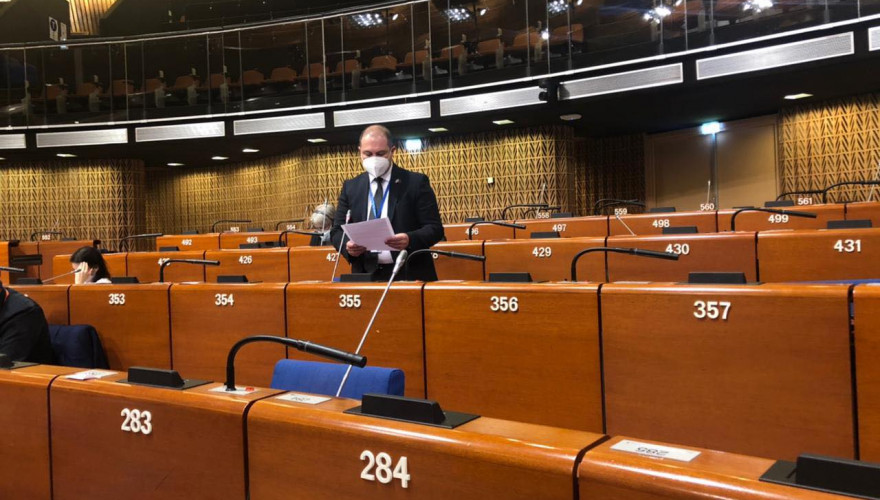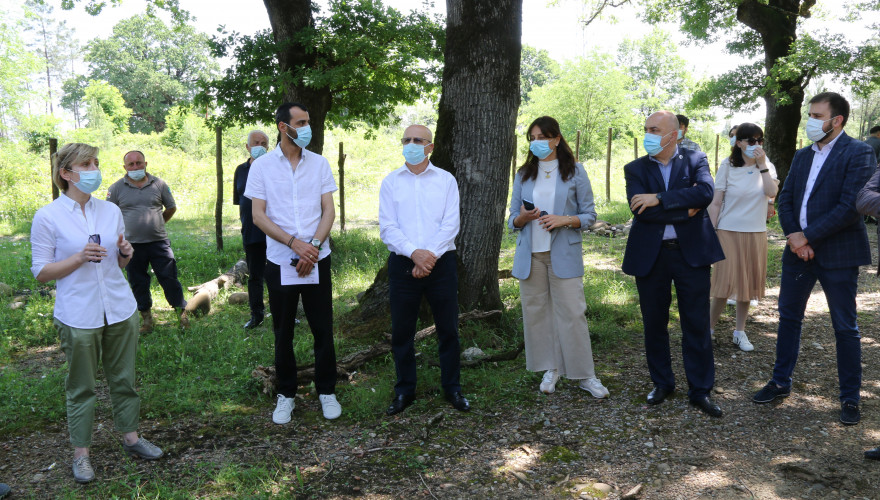Givi Mikanadze: We are elaborating on the implementation of unique and novel mechanisms for the civic integration of ethnic minorities, which will bring tangible results

"Civic integration is an ongoing process in Georgia, so we are working to implement unique and novel integration mechanisms that will bring tangible results in various areas of civic integration - be it quality education, state language skills, civic and political participation, or socio-economic opportunities”, - Givi Mikanadze, Member of the Permanent Delegation of the Parliament of Georgia to the Parliamentary Assembly of the Council of Europe stated at the plenary sitting of the Assembly.
The MP addressed the members of the Assembly on the topic - "Protection of National Minorities in Europe" and expanded on the steps that Georgia is taking to improve the civic integration and socio-economic opportunities of ethnic minorities.
The MP reminded his colleagues that Georgia is a multiethnic and multicultural country and more than 13% of the total population (excluding the Russian-occupied regions of Abkhazia and South Ossetia) are ethnic minorities.
"Georgia boasts with centuries-long positive experience in preserving the tradition of cultural diversity, coexistence and development in a tolerant environment", - G. Mikanadze stated.
According to him, the elimination of discrimination, protection of human rights and equality are ensured by the Georgian legislation through the state strategy and action plan on civil equality and integration developed in recent years.
The MP also dwelt on the unique tools that have been developed for the civic integration of ethnic minorities and noted that members of ethnic minorities living in Georgia have access to media, socio-economic programs and services.
Pursuant to the MP, in 2017-2020, 331 meetings were held in 259 villages regarding the prospects of Georgia's European and Euro-Atlantic integration, which was attended by more than 7000 beneficiaries of ethnic minorities. A large-scale bilingual information campaign was carried out on the prevention of COVID-19, as well as on the issues and regulations of lockdown.
According to G. Mikanadze, in addition to non-discriminatory and equal treatment, minority rights include the preservation of cultures - "The state uphold theaters, museums and cultural centers of ethnic minorities, as well as various cultural activities carried out through the Ethnic Minority Culture Support Program, which aims to promote the culture and traditions of ethnic minority groups, as well as intercultural dialogue”.





